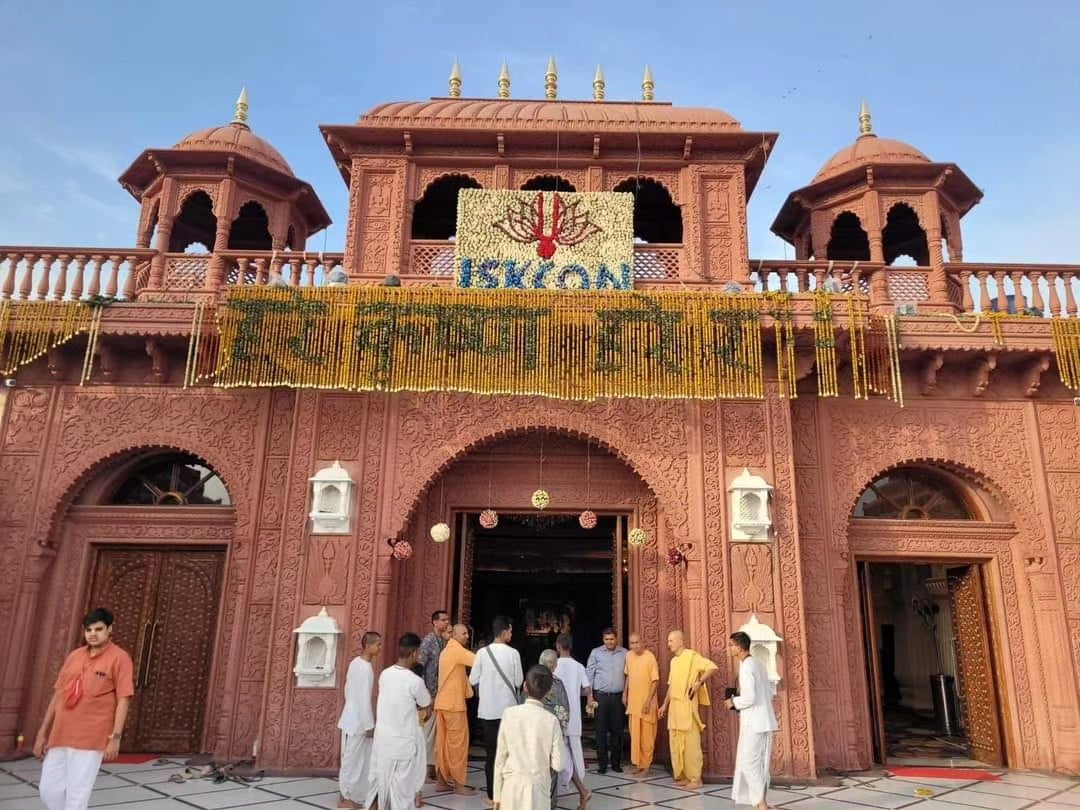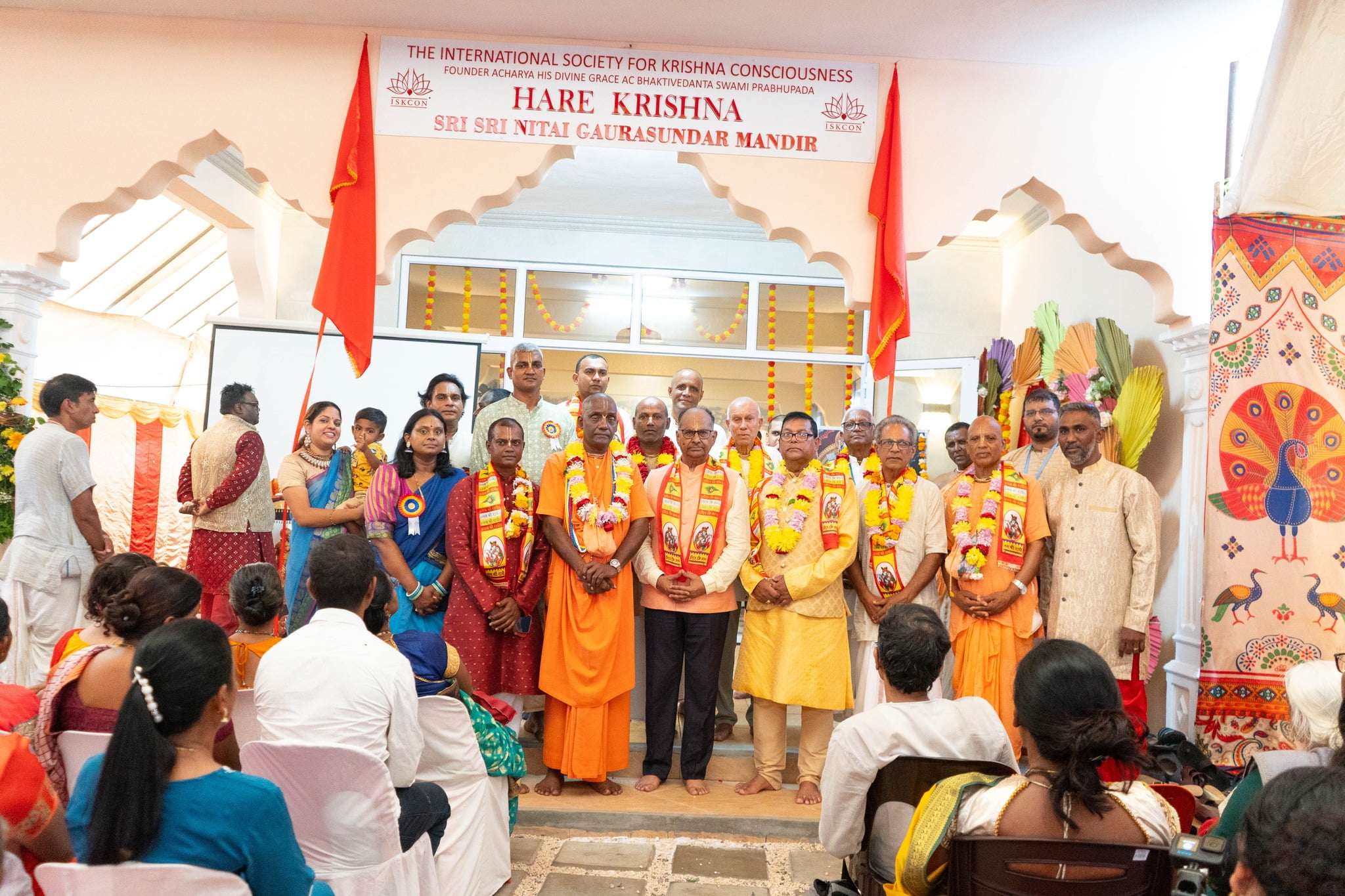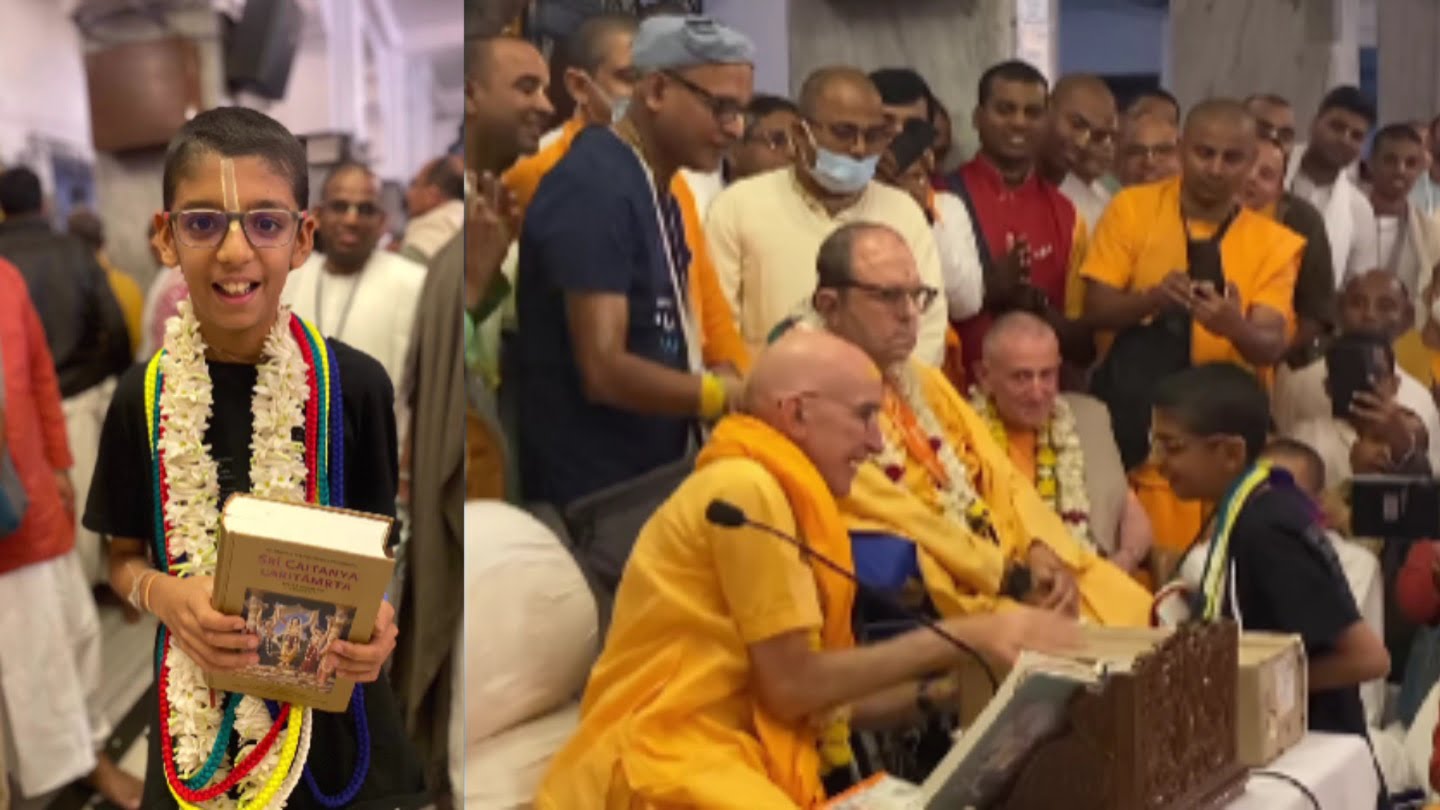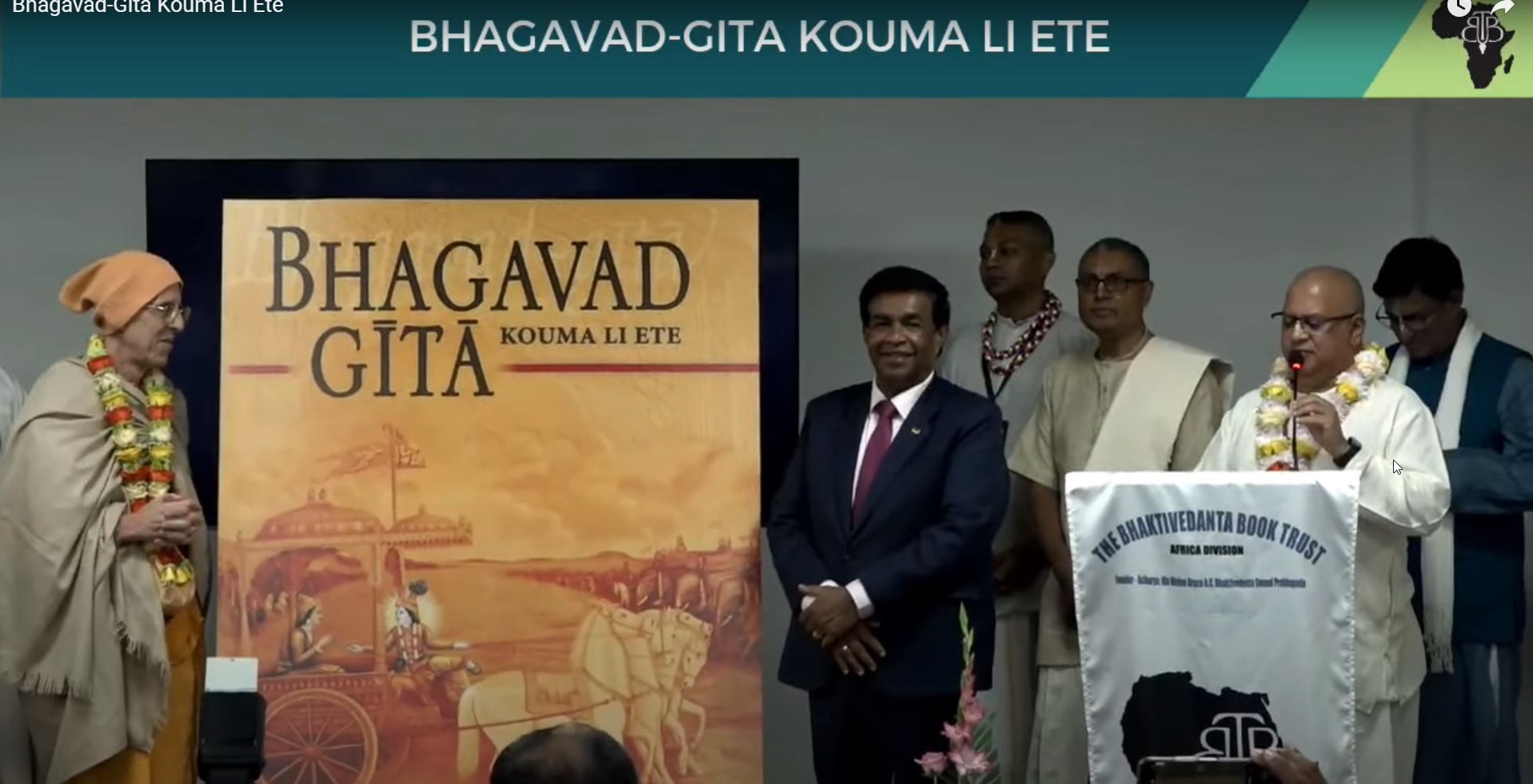Prabhupada’s Books Bring Hope to Kazakhstan
By Madhava Smullen | Mar 28, 2009

With the collapse of communism in 1989, ISKCON devotees in Kazakhstan began to raise their heads out of hiding and students across the country found their interest in Krishna consciousness piqued. Radheshyama Dasa—whose parents had instilled in him a love of esoteric books since childhood—was one of these. When he saw a friend of his lost in a Russian copy of Bhagavad-gita As It Is, he sought out devotees at Karaganda University, where he was a student of biology, and bought himself a stack of Srila Prabhupada’s books.
By 1991, he had joined the ISKCON temple in Moscow, and by the end of that year he was living in Almaty, Kazakhstan, and distributing the same books back to his native people.
In 1992, the first BBT book in Kazakh—Easy Journey to Other Planets—was released after being translated by a volunteer. The North European BBT wanted to strike while the iron was hot. They needed someone more full-time. And who better than their enthusiastic new book distributor in Almaty?
“I started with Perfect Questions, Perfect Answers, and between 1992 and 1994 we printed six of the most important small books,” Radheshyama recalls. He’s being generous with the word ‘we’—apart from some help from a few non-devotee translators, the Kazakh BBT was a veritable one-man show, with Radheshyama serving as translator, typesetter, proofreader, and editor.
By 1997, the demand for a Kazakh Bhagavad-gita was strong—the BBT, book distributors, general public, congregation, and ISKCON’s Governing Body Commission were all asking for it. When GBC member B. B. Govinda Swami addressed the Kazakh devotees, requesting that they translate the Bhagavad-gita, it came as no surprise that Radheshyama was nominated for the job.
It was a monumental task. Starting in late 1997 at the North European BBT’s Russian translation department in Sochi City, and finishing back in the Almaty temple when that branch was shut down, Radheshyama completed translation in 2001. It took another four years to proofread the manuscript, and two more to collect the funds needed for printing. But in January 2008, after generous contributions from well-wishers, 3,000 copies of the beautiful new Kazakh Bhagavad-gita were finally printed.
“Thanks to the many devotees who helped, the Kazakh Gita became a reality, just as many more books will become a reality in the future,” Radheshyama says. “Bhakta Kalkoz, a professional journalist who proofread the Bhagavad-gita and Beyond Birth and Death from his own home, deserves a special mention. His work is completely selfless—he never accepts pay. The same for Bhaktin Ulpan, a student who assisted with proofreading, for which she had to read the Kazakh Bhagavad-gita eight to ten times.”
While its network is growing, the Kazakh BBT remains a part of the North European BBT, with no offices or printing facilities—Kazakh books are printed at the Moscow CIS branch. “Of course, I still dream that one day we will have our own regional Kazakh BBT office and printing house,” Radheshyama says. “It would be a good step towards having a more focused work environment and saving money on transportation and printer fees.”
ISKCON’s growth in Kazakhstan in general has been stunted by government persecution. In November 2006 and June 2007, local authorities bulldozed 26 of the original 66 homes owned by devotees at the Sri Vrindavan Dham community in Almaty. They also stripped the community of ownership of the separate 118-acre farm, and continue to disrupt worship at the site. Book distribution has also been a victim—in recent years, local religion leaders have worked through the government to stop devotees distributing books at universities and colleges. And distribution on the streets can be dangerous.
“Kazakh-speaking people are somewhat aggressive towards other religions, because they think they are Muslim,” Radheshyama explains. “Once in 1999, Ksirodakasayi Dasa, who has distributed thousands of Kazakh books, was attacked and beaten up by one Kazakh man. Since Ksirodakasayi is very tough himself, devotees were a little surprised—until they learned that the man was a wrestling champion.”
Krishna Nayaka Dasi, who began distributing books in 1990 at the age of fifteen, has her own unique method of self-defense—she pretends she’s Japanese. “If fanatics know you’re Kazakh, they’re more likely to harm you, but if they think you’re a foreigner, they’ll leave you alone or may even buy books from you,” Radheshyama explains.
For those times when fanatics see through her guise, Krishna Nayaka relies on the Lord’s protection. “Recently one old man attacked her, ordering her not to preach to the Kazakh children,” Radheshyama says. “Suddenly, by Prabhupada’s mercy, she realized that the fear had left her. With a lovely smile on her face, she said: ‘I will preach to your children.’ The man’s heart melted, and he left her alone.”
Despite all the difficulty, book distribution in Kazakhstan remains healthy. And the BBT continues to produce new books there—Radheshyama is currently translating Science of Self-Realization, and many more are on the way.
For Radheshyama, life is simple. “Prabhupada’s books have done so much for me, and in return I want to fulfill his instructions. My long term goal in life is simply to translate, print, distribute, and teach all of Prabhupada’s books.”












